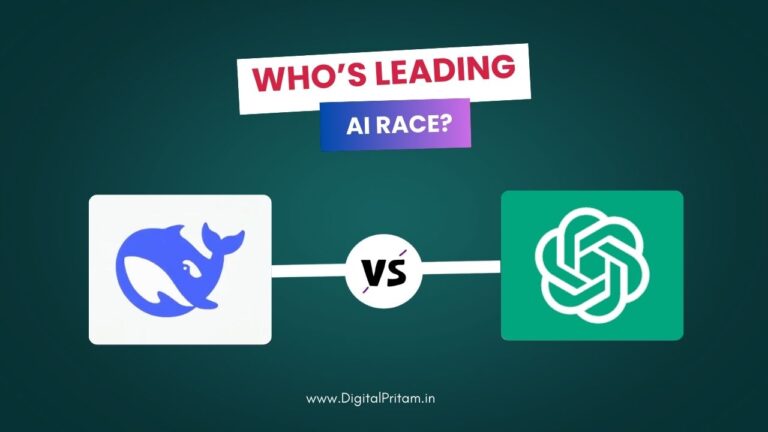Harnessing Digital Minds: The Rise of AI Agents

As technology advances, AI agents have transformed into digital entities capable of autonomous decision-making, revolutionizing how we interact with the digital world. This article delves into the depths of AI agents, their applications, and the future they hold, offering a comprehensive understanding of these digital minds in action.
Understanding AI Agents
Understanding AI Agents begins with grasping the essential principles that underpin their operation. At their core, AI agents are capable of perceiving their environment, reacting to it, and autonomously pursuing specified goals. These agents range from basic programs that execute simple commands to highly complex entities capable of learning and adapting to changing conditions.
One foundational element of AI agents is their ability to act upon an objective function. This function defines the goals the agent aims to achieve, guiding its actions and decisions. Whether it’s optimizing a process, solving a problem, or making predictions, the objective function is crucial for aligning the agent’s behavior with the desired outcomes.
The spectrum of intelligence among AI agents is vast. On one end, there are basic systems designed for narrow tasks, such as automated responses in customer service. These agents operate under specific, predefined rules and have limited capabilities. On the other end, there are advanced AI agents that employ sophisticated algorithms, including those based on machine learning. These entities can learn from data, improve over time, and make complex decisions, closely resembling human-like cognition.
In considering the broader implications of AI agents, it’s essential to recognize their significance across various fields. In economics, they can model and predict market trends, contributing to better decision-making. Cognitive science benefits from studying AI agents, as they offer insights into natural intelligence and learning processes. Ethical considerations also arise, particularly concerning the autonomy of AI agents and their impact on society.
Moreover, AI agents embody the intersection of numerous interdisciplinary studies, from computer science and mathematics to philosophy and psychology. This convergence highlights the complexity and multifaceted nature of designing, understanding, and deploying AI agents.
Distinguishing between abstract intelligent agents and their real-world implementations is critical. While the theory behind AI agents guides their development, practical applications reveal the challenges and limitations faced in real situations. This distinction underscores the continuum from conceptual models to tangible systems that effectively navigate the complexities of the real world. Understanding AI agents in both theoretical and practical contexts enriches our grasp of their capabilities, limitations, and the future trajectory of artificial intelligence technology.
AI Agents in Practice
Building upon the foundational understanding of AI agents, we delve into their practical applications across various sectors, marking a significant shift from static, rule-based systems to dynamic, continuous learning and decision-making platforms. This transition has been notably fueled by advancements in machine learning (ML) and natural language processing (NLP), which have significantly enhanced the capabilities of AI agents.
In the realm of software development, AI agents have transcended their traditional roles, evolving into sophisticated tools that can not only identify bugs but also suggest code improvements or even write code autonomously. These agents, equipped with ML algorithms, learn from vast repositories of code, enabling them to understand coding patterns and anticipate potential errors, thereby augmenting the efficiency and reliability of software development processes.
Customer support has been revolutionized by AI agents, as they can now provide 24/7 service with increasing levels of human-like interaction. Powered by NLP, these agents understand and process user queries in natural language, offering precise and contextually relevant solutions. This capability not only enhances customer experience but also significantly reduces the workload on human support teams by handling routine inquiries, allowing human agents to focus on more complex issues.
In enterprise workflows, AI agents are streamlining operations by automating routine tasks, such as scheduling, data entry, and even complex decision-making processes. These agents, through continuous learning, adapt to the changing dynamics of business operations, optimizing workflow processes over time without explicit reprogramming. This adaptability ensures businesses remain agile and can rapidly respond to market demands or operational challenges.
Cybersecurity has perhaps benefited most from the evolution of AI agents. In an era of increasingly sophisticated cyber threats, AI agents provide dynamic defense mechanisms that can predict and neutralize threats in real-time. By continuously learning from new data and attack patterns, these agents stay ahead of cybercriminals, adapting to evolving cybersecurity threats without requiring constant manual updates. This not only enhances the security posture of organizations but also ensures that cybersecurity measures are more proactive than reactive.
These practical applications underscore the transformation of AI agents from static, rule-based systems to self-learning, decision-making entities. As we edge closer to the future, the role of AI agents is set to expand, promising even more innovative applications and reshaping industries in ways we are just beginning to comprehend. The implications of these advancements pave the way for a future where AI agents not only perform tasks but also anticipate needs and innovate solutions, marking a significant leap towards true autonomous intelligence.
The Future of Autonomous Agents
Building on the practical applications of AI agents across various industries, it’s crucial to delve into the evolution of these intelligent systems, focusing on the strides made in deep learning and reinforcement learning. These methodologies have propelled AI agents from mere rule-based entities to sophisticated systems capable of learning from their environments and making decisions autonomously.
The advent of deep learning has been a game-changer for AI agents, enabling them to process and interpret complex data patterns at an unprecedented scale. This advancement has significantly enhanced the capabilities of AI agents, allowing them to tackle tasks that were previously deemed too complex, such as understanding human speech or recognizing objects in images with high accuracy. This leap in capability is not just a matter of quantitative improvement but represents a qualitative shift in how machines can learn and adapt.
Reinforcement learning, on the other hand, has allowed AI agents to learn from the consequences of their actions, akin to a trial-and-error learning process observed in humans. By interacting with their environment, these agents optimize their behavior to achieve specified goals, leading to increasingly autonomous operations. This autonomy is particularly evident in industries like transportation, where AI agents are at the forefront of developing autonomous vehicles that learn from vast datasets of driving scenarios, constantly improving their decision-making algorithms for safer and more efficient transportation solutions.
In healthcare, AI agents are revolutionizing diagnostics, patient care, and personalized medicine by sifting through massive datasets to identify patterns that would be invisible to human practitioners. By doing so, they can suggest treatments, predict disease outbreaks, and even assist in surgical procedures, showcasing their potential to save lives and improve health outcomes on a global scale.
The long-term implications of these advancements are profound. As AI agents become increasingly autonomous, they promise to transform every facet of our lives, economy, and society. However, this autonomy also raises critical ethical considerations. The delegation of decisions, especially those affecting human safety and well-being, to machines, introduces a myriad of ethical dilemmas. Issues such as accountability, privacy, and the potential for AI systems to inherit or perpetuate biases present in their training data necessitate a rigorous examination.
Therefore, as we stand on the cusp of this new era of autonomous agents, it is imperative to approach their development and integration into society with a balanced perspective, fostering innovation while ensuring ethical standards are upheld. Future policies and regulatory frameworks will need to evolve in tandem with technological advancements to address these challenges effectively, paving the way for a future where AI agents contribute positively and sustainably to human progress.
Conclusions
The discourse around AI agents underscores their profound impact on technology and society. From simple task automation to complex decision-making, they are orchestrating a new era of autonomy in digital systems. Their expansive application and future potential signal a transformative shift not only in technology but in our very approach to problem-solving and innovation.

Pritam Sonone
Pritam is a full-time blogger, YouTuber, author, and public speaker. He founded and leads Digital Pritam. With over 14 years of blogging expertise, he has assisted numerous aspiring bloggers in achieving their dreams of creating successful blogs.







